
Our November Collab Lab explored placed-based engagement–what it can offer students, and the ways we might engage students around particular places in their neighborhood, their lives, or the broader community.
Discussion
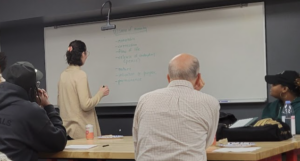 We started the conversation by asking participants to describe for their tablemates a public space that holds meaning for them. We then asked each group to identify the what helped create that sense of meaning. Across our discussion groups, several key themes emerged:
We started the conversation by asking participants to describe for their tablemates a public space that holds meaning for them. We then asked each group to identify the what helped create that sense of meaning. Across our discussion groups, several key themes emerged:
- The opportunity to experience a place over an extended period of time– within a single visit or across multiple visits
- The sense of agency/ownership/belonging/feeling of welcome individuals had within those places
- A feeling of connection to a place’s history, their own experience within it, or with the people of that place
The ability of participants to experience a place through multiple senses, bring their own knowledge or experience to their understanding of a place, physically engage with or within a place, or recognize a feeling of peace (or danger), all add to the ways we find meaning or a sense of magic and wonder in a place.
From there we asked participants to identify what they came to understand about places which hold meaning for them, that a casual observer, or one who had not spent much time in the place would miss. Here, the temporal experience of places came to the fore– how it changes during the day, with the seasons or over the years; how it evolves or adapts physically, in how it is used, and the meaning it holds for those who inhabit or care for the place. Participants also recognized that much of the meaning a place has for them is a product of what they bring to the place, that there are multiple ways of experiencing the same place, and often unwritten rules which guide one’s conduct within it.
As a final point of discussion, we asked how students might gain that sense of meaning, or a deeper understanding of places within Milwaukee. Here, we found clear agreement across the discussion groups– “Get out of the way”. Students need time and the freedom to experience and explore places on their own terms. The meaning of a place can’t be proscribed for students, it needs to grow organically from their experience, knowledge, and understanding of that place.
We can however help set up the conditions that can allow that to happen:
- Don’t fill or control every minute of a field trip or field experience, leave time for students to explore and experience the place you’ve brought them to on their own terms.
- Build a classroom culture that welcomes reflection, understanding of the experience of others, self exploration, and a willingness to share ideas
- Leverage the fact that each student comes with their own experience of the city and connections to different parts of it
- Start with places students do know and care about, and let them explore outward from there
- Allow students to engage with new places in the context of issues they care about
Participants recognize that curriculum, access, proximity, and time all pose constraints as we seek to engage students in building a deeper understanding and connection of places within Milwaukee. But there was also a hopeful thread of thought that looked to kindle a re-enchantment with the world for students and a recognition that one can find wonder and meaning within the most mundane places. That starts with simply creating the opportunity and getting out of the way.
Thanks
A big thanks to all who were able to join us for the discussion, and especially our Featured Participants:
Lauren Instenes— Project Coordinator for the MKE Roots Project, Marquette University
Joseph Kaltenberg — MKE Parks Manager, City of Milwaukee – Department of Public Works
Arijit Sen — Associate Professor of History and Urban Studies, UW Milwaukee
Angela Vickio — Wisconsin Department of Natural Resources
Thanks also to MSOE’s STEM Center for hosting us.
Resources
We didn’t get much time to talk through Arijit Sen’s Field School project, but he did share several links to that work with us:
- The Field School web site
- Stories from the Milwaukee Garden Network
- The Milwaukee Environmental Justice Lab
- The Washington Park Collaborative
J.B Jackson’s work looking at ordinary landscapes was also mention. Here’s a link for further reading https://daily.jstor.org/j-b-jackson-and-the-ordinary-american-landscape/

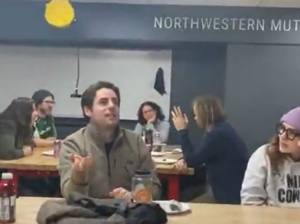 Collab Lab 53 attendees explored new or unexplored ways in which educators might enable students to share their voice and practice advocating for a cause they believe in. They explored:
Collab Lab 53 attendees explored new or unexplored ways in which educators might enable students to share their voice and practice advocating for a cause they believe in. They explored: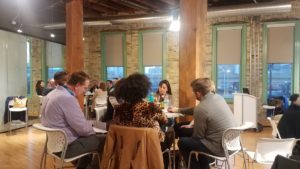 Collab Lab 26 focused on storytelling and how we can use those practices to empower student voices and drive engagement.
Collab Lab 26 focused on storytelling and how we can use those practices to empower student voices and drive engagement.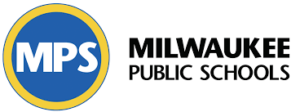 Karen has been teaching English, Media, and Communication courses for 23 years in Milwaukee Public Schools. She is President of The National Telemedia Council and an editorial board member of The Journal of Media Literacy.
Karen has been teaching English, Media, and Communication courses for 23 years in Milwaukee Public Schools. She is President of The National Telemedia Council and an editorial board member of The Journal of Media Literacy.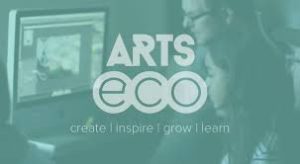 Emily is a faculty member within the areas of First Year Program and Digital Studio Practice at UW-Milwaukee’s Peck School of the Arts; she also serves as a contributing faculty member within UWM’s Immersive Media Lab, and as Program Coordinator for Milwaukee Visionaries Project (MVP), an after-school filmmaking program for middle/high school students from throughout the City of Milwaukee.
Emily is a faculty member within the areas of First Year Program and Digital Studio Practice at UW-Milwaukee’s Peck School of the Arts; she also serves as a contributing faculty member within UWM’s Immersive Media Lab, and as Program Coordinator for Milwaukee Visionaries Project (MVP), an after-school filmmaking program for middle/high school students from throughout the City of Milwaukee. Dominic is a former teacher of 22 years at Marquette University, Pius XI High School, and The Prairie School in Racine. In October 2016 he founded ZIP MKE, which has collected over 2,000 photographs celebrating and connecting faces, places, and experiences from all 28 ZIP Codes in the city of Milwaukee. He is also the lead City Organizer for Jane’s Walk MKE, which celebrates the legacy of urbanist Jane Jacobs by organizing free, citizen-led neighborhood explorations and building community connections through observation and dialogue, education and storytelling, and collectively reimagining and changing the places in which Milwaukeeans live, work, and play. He writes a monthly column for Milwaukee Independent, telling the stories of change-makers throughout the city, and recently began work as an educational consultant at Vel R. Phillips School at the Juvenile Detention Center, where he is helping teachers collaborate with students on individualized, interdisciplinary research that will likely involve submitting podcasts to NPR. He is looking forward to learning from all of you.
Dominic is a former teacher of 22 years at Marquette University, Pius XI High School, and The Prairie School in Racine. In October 2016 he founded ZIP MKE, which has collected over 2,000 photographs celebrating and connecting faces, places, and experiences from all 28 ZIP Codes in the city of Milwaukee. He is also the lead City Organizer for Jane’s Walk MKE, which celebrates the legacy of urbanist Jane Jacobs by organizing free, citizen-led neighborhood explorations and building community connections through observation and dialogue, education and storytelling, and collectively reimagining and changing the places in which Milwaukeeans live, work, and play. He writes a monthly column for Milwaukee Independent, telling the stories of change-makers throughout the city, and recently began work as an educational consultant at Vel R. Phillips School at the Juvenile Detention Center, where he is helping teachers collaborate with students on individualized, interdisciplinary research that will likely involve submitting podcasts to NPR. He is looking forward to learning from all of you.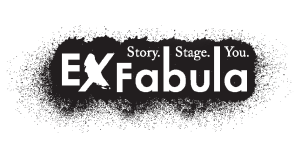 Ex Fabula is a nonprofit that strengthens community bonds through the art of true, personal storytelling. Since its grassroots inception in 2009, the org has engaged over 29000 teens and adults at 400+ workshops and StorySlams held all over the Milwaukee metro area. Especially powerful stories are shared with an even broader audience via Ex Fabula Radio on 89.7 WUWM, which attracts additional thousands of listeners each week.
Ex Fabula is a nonprofit that strengthens community bonds through the art of true, personal storytelling. Since its grassroots inception in 2009, the org has engaged over 29000 teens and adults at 400+ workshops and StorySlams held all over the Milwaukee metro area. Especially powerful stories are shared with an even broader audience via Ex Fabula Radio on 89.7 WUWM, which attracts additional thousands of listeners each week.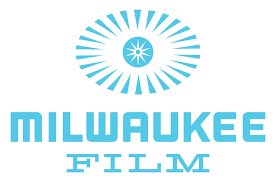 Milwaukee Film hosts the Milwaukee Film Festival, a 15-day festival boasting annual attendance around 80,000 for over 300 films (shorts, features and VR shorts), and operates the historic Oriental Theatre year-round. While Cara’s role at Milwaukee Film has evolved to include more than just Education, those programs (serving young people in and out of school contexts as well as their educators) continue to be her happy place!
Milwaukee Film hosts the Milwaukee Film Festival, a 15-day festival boasting annual attendance around 80,000 for over 300 films (shorts, features and VR shorts), and operates the historic Oriental Theatre year-round. While Cara’s role at Milwaukee Film has evolved to include more than just Education, those programs (serving young people in and out of school contexts as well as their educators) continue to be her happy place!